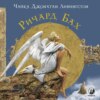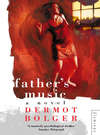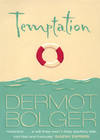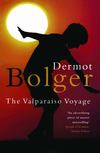Kitabı oku: «The Woman’s Daughter»
DERMOT BOLGER
The Woman’s Daughter

In Memoriam
‘Although finn strictly means a colour, it is used to designate water that is clear or transparent. In this way is formed the name Finglas from glais, a little stream: Finn-glais (so written in many old authorities), Crystal Rivulet.’
– Joyce, P. W. (The Origin and History of Irish Place Names, Vol. II, 1883)
‘But you’ll have to ask that same four that named them is always snugging in your barsalooner, saying they’re the best relicts of Conal O’Daniel and writing Finglas Since the Flood. That’ll be some kingly work in progress.’
– Joyce, James (Finnegans Wake)
Contents
Cover
Title Page
PART ONE: The Woman’s Daughter
PART TWO: Victoriana
PART THREE: The Crystal Rivulet
About the Author
From the reviews for The Woman’s Daughter:
By the same author
Copyright
About the Publisher
PART ONE The Woman’s Daughter
There is a city of the dead standing sentinel across from her window. Through the gully between them a swollen rivulet is frothing over smooth rocks brimming with the effervescent waste of factories. Within its boundaries grey slabs of granite are flecked with shards of mud as sheets of rain churn up the black pools that nestle in the webbed tyre tracks. Above its crumbling lanes and avenues stooped ivy-covered trees shiver over the homes where no soul moves.
There is a city of the dead that edges down the grass bank towards her window. To the brink of the rivulet that sprays out from an underground pipe. The gnarled fingers of its railing slot shadows over tombstones from the illuminated carriageway. The holes on the pitch-and-putt course breathe easy without their spears. The alarm on the pub wall waits, broken glass in the car-park dreams of tyres. The last lorry lurches down the steep hill and onward towards the countryside. The bored attendant in the all-night garage cradles his head beside the ranks of switches and dials. The cables and monitors hum in his glass vault, the night’s takings snug in the floor safe. He seems to be the only living thing as he lifts his head to gaze across the gleaming forecourt to the railings outlined in the yellow light. Yet even there life stirs invisibly downward. Below the plain stones and pillared crypts that end united in the soil, there comes the inaudible creak of life bursting through. The sigh that is clay capsizing, the bustle of blind creatures being eternally renewed.
There is a city of the dead whose gates all fear to enter. Every morning the woman observes it when she leaves her home. Each evening it stands there, patiently awaiting her return. In the hours between she sits beside the conveyor belt picking the indented cans from the incessant silver stream. At night, when the curtain moves in the room, the moon sketches out the grey stones and rushing water like a sole universe. In daylight the curtain never moves, the room staying in darkness which we have never known.
Would we find a figure there stretched in the blackness? Could it live or breathe? Since the sword of light retreated beneath the door it has lain stationary. What could it dream of, knowing no world beyond these walls, the nightlit river and stones? Food? Light? A Saviour? A trickle of blood? The woman’s stories constantly retold?
If our eyes grew accustomed to such darkness we might discern the shape of a nightdress, the outline of a girl and long folds of lank hair. Our ears, still unattuned, hear nothing, yet her head twists towards the door and one elbow lifts her from the bed. Just when we’re certain she’s been mistaken the key burrows into the stiff lock, the glass panels shiver as the front door slams and the footsteps commence on the stairs. One step, two step, the bogeyman is coming. Three step, four step, your mother is home. The girl’s head swings upwards and one bare foot reaches slowly out for the cold lino. The beam of light swarming through the keyhole would catch the white bend of her knee and then be blocked by the key blinking in the lock and the flood of electric light saturating her eyes with a searing whiteness through which the woman came home exhausted from her work.
But it is night now, they should be sleeping according to the ritual played out in that house day after day. The woman returned to her parents’ bed, the child silent in her own. Soon it will be time for the woman to rise, a second before the clock would shatter the stillness if not smothered by her hand. She should stand cooking breakfast in the winter dark, two cracked bowls of thick steaming porridge carried up the stairs. Her mind returning to the worry of leaving the house for work, the exhortations for silence, the fable of the man who guards the stairs, the double checking of each lock.
Except that one of them is squatting in a heap beneath the window with the curtain torn down. The single bed is empty, the blankets forming mountain ridges across the floor. She hugs herself as her eyes, terrified, never leave the woman sitting on the chair beside the door that should not be open, above the hallway where the shards of hammered glass glint in the streetlight coming through the broken frame. The night air like an intruder sneaks in, carrying off the stale smell of sweat and urine and polish. The woman lifts her head.
I should never never have let that plumber in. It was him started it all. The first person since those busybodies inside the house for eighteen years. I wouldn’t have let him in at all only the Corporation sent him and he refused to go away. The typical sneaky sort he was, asking all sorts of questions.
‘I suppose you’re lonely here all alone?’
All alone, I ask you! You needn’t think that he fooled me for a moment. He was sent by them down the street, always prying around and trying to poke their noses in. Do you remember the trouble I had trying to mend that tank the time the ballcock broke? Balanced up on the ladder stuck in the bathtub in my nightdress with both hands plunged deep into the icy tank trying to do something that would fix it. And the water pouring out into the yard from the overflow pipe up beside the gutter for three days in a thundering fountain that formed a black pool swirling down the drain. A good skirt I wasted trying to block the hole where the water kept rushing into the tank.
And then I came down here and sat beside your bed with my hands all red-raw and numb from the freezing water, and I thought you were asleep until you sat up in the darkness to reach out and begin to blow warm air on my palms and rub them till they started to thaw. There was just the two of us like always, but you were nursing me for a change, and though from the side of the house we could hear the torrent of water splashing down into the yard, we were cut adrift all high and dry like Noah sailing off in his Ark.
I was so happy that night with my hands in yours as if it made up for everything. Because I could have been all sorts of things, you know. I had talent when I was young. In school I used to be in plays in the classroom, and once Kitty Murphy and myself did a sketch for the Christmas show at the Parochial Hall. We were dressed up as cleaning ladies with mops and buckets and curlers in our hair and the whole place roared with laughter. But you know, I wouldn’t swap that night for the whole world, with the two of us up here and you leaning forward to blow warm air all over my hands.
But still they’d no right to call in the Corporation. What business was it of theirs if there was water coming down. In the end, I would have found a way to fix it like I always do, or turn the water off from the street with that big metal key that Daddy used to keep in the shed.
He battered at the door like a policeman and I ducked down behind the glass, but he must have seen me for he banged and banged till I ran upstairs and warned you to lie still as I locked your room. Then he was all smiles when I opened the front door.
‘Sorry to bother you, Miss O’Connor, but we believe you might have a bit of trouble with your water tank.’
A great big slob he was in his dirty blue overalls with a cigarette perpetually hung between two rows of brown teeth. I let him up into the attic all right, but he was getting no information out of me. I just stared dumb at him the whole time and then watched him from behind the curtains till he drove off in his van.
All alone! This is my house, and my parents’ before me, and they’d better learn to respect it. I chased them off with a bread knife the last time they came calling. The tenants’ association, the community week, join this, pay that. I know what they were after. You should have seen them run that night when I grabbed the knife, shoving each other out of the gate like their tails were on fire.
The child had to be fed. That was why she had always shrugged her way to the front of the crowd gathered around the clock. That was why each evening she had to be the first to squeeze her card down into the machine and wait for the click. The child had to be fed. The responsibility blotted every other thought out as she hurried down the passageway without time to join the cluster of women chatting as they put on their coats and smoked in the cloakroom. Out through the cars and bikes and noisy groups walking towards the gates and down the long carriageway where the old woods used to be.
All that was left was the secret snake of the rivulet that glinted to her here and there down in the steep gully that ran beside the dairy. A few trees remained with their roots exposed on the steep bank and often from one of these the children would tie a thick rope to one of the high protruding branches and out they would swing, three and four girls and boys at a time, clutching each other as they hung on to the rim of the old tyre suspended from the end of the cord. They screeched as they lurched out through the blue air above the swirling water and when they were carried back it seemed as if they would never reach the crumbling ledge of earth again. Then one of the boys would catch his foot on the exposed root and they would all fall backwards in a tumbling heap of jeans and skirts as fresh pairs of hands grabbed the tyre before it swung out into orbit again.
The woman loved to pause and watch them from the path alongside the carriageway but the child had to be fed and so she hurried on, past the spot where the old woman once sold wafers of ice-cream from her cottage shop on Sunday mornings, and up the steep hill towards the estate. She walked quickly here, with her head to one side, always gazing down as she imagined the gauntlet of eyes behind windows. Often she found herself suppressing the childhood habit of alternating her steps to avoid the cracks in the pavement and she almost ran the final steps to the sanctuary of the doorway. Sunlight ran briefly down the lino her father had laid in the hall and then was caught and flung back as the door closed. She leaned against the glass for a moment in the musty hallway and listened for the first creak of the mattress above her.
Don’t stare at me like that, you frighten me with those eyes. They’ve gone now, I tell you, they’ll never harm you. I’ve always looked after you, you know I always will. Don’t move away from me again, come back daughter, come here like you used to, do you remember? Take down your dress and rock in my arms the way you loved to when you were small. And I’ll tell you a story; I’ll tell you how we came here, me and Johnny and Mammy and Daddy.
We were all up on top of a huge open lorry and Daddy was cursing because he couldn’t get the rope to fit around it. There was a crowd of neighbours from Rutland Street gathered around the lorry and he’d bought a bag of Lemon’s boiled sweets for all my friends even though it wasn’t Saturday. They kept jumping up and waving at me until I felt like a film star, and then Daddy climbed in beside the driver and with a big black puff of smoke we moved off with the children running behind and old Mrs O’Byrne from the same landing leaning out of her window and calling to my mother who was sitting on one of the new chairs.
We drove away up the North Circular Road with Johnny and myself clasping our hands under the chairs to keep from falling off, past Doyle’s Corner until we came over Cross Guns Bridge and saw the big flashing lock of the canal at the flour mill where that woman was murdered, and then out past the orphanage where all the boys in short trousers with their hair cropped like convicts raced over to the tall railings to stare at us and shout at Johnny, and then along by the grey stone wall with the towers till we reached the railings of the cemetery. That scared me when I saw it first, with those carved out tombs of priests and bishops just within the walls covering the bones of figures stretched out in stone, and the big crowd of sombre mourners waiting for some hearse. And then we reached the countryside with the big houses set in their own grounds across from the graveyard and the road sweeping down towards the stone bridge with a pub where the wood began.
We swung left there and up that hill where there was a little row of small cottages and a country lane leading down to the back of the dairy. It felt like we were out in Meath or Wicklow. And then the truck swung left again into an uneven road and we had to grip the chairs tight to cling on. And as I swung my head round to see this street with muck and stones from the builders all over the road and every second house still empty, I got so excited I almost cried out with so much space everywhere.
Another crowd gathered when the lorry pulled up, but this time nobody waved to us. Instead the children stared silently from the doorways or called backwards to their parents inside. My father got out and I could see he was angry. He stood looking up at the furniture as if he wanted to bundle it all up under his coat and run inside.
‘We should have waited for darkness,’ he said, ‘to get the stuff into the house.’ He carefully avoided the watching eyes as he hauled at the ropes, only intent on trying to save his pride.
My mother was different. She climbed down from the truck and stood there brushing her hands as if every detail of the street was to be savoured like a prize. A neighbouring woman approached her and with a careless wave of her hair she was gone off to drink tea in a kitchen. Some of the children came closer and craned their necks to gaze up.
‘Oi, headtheball, where’d ya get the sister?’ one boy shouted and they all laughed. Johnny sat with his feet swinging over the edge of the lorry talking to them. He jumped down to join the crowd as they moved off and called to me over his shoulder. But even though I wanted to follow, I stayed there expecting him to turn again or stop and call for me, but he never bothered and they all just ran on with their feet scrambling for a kick at a small plastic ball.
My father and the driver were working without ever exchanging a word, shifting piece after piece of furniture in through the hall door. After a while, the driver stopped as if asserting his independence and offered Daddy a cigarette. They stood in the doorway silently smoking. The winter twilight was coming in, dragging a cold mist down with it.
I walked past them into the hall and climbed the bare stairs to the top step. This is my step, I thought, this is my house. I said it over and over again as if I couldn’t believe that other floors weren’t built on top of it and people would not keep tramping up and down to them. And as I sat up there on that floorboard in the darkness, gazing down with a strange sense of pride at the bare circle of light in the hall, it seemed as if a child’s bony fingers reached out to pinch my back from the empty landing behind me. I never turned my head, I sat perfectly still, watching the backs of the two men as they bent beneath their loads, and listening to the echo of their boots retreating down the concrete path.
Every morning the same; the monotonous meals prepared and carried upstairs, the silence when they sat, the manic cheerfulness of the woman’s voice as she unveiled the small tokens of gossip and snatches of conversation she spends her day inventing to carry home like worms in her beak. And then the irretrievable silence settling like dust in the room when the train of lies slows to a halt and there is nothing left to make of the day. Then sometimes, like now, the story will begin, narrated over and over, part by part, as if some key that had been mislaid in all the other tellings might suddenly glint in the light of this one. Again and again the faces, the actions, the voices of this house, as if the recounting could somehow exorcize them. Always she begins it for the girl whose mute eyes show no recognition. Always she finishes it for herself as if only the chain of memories sustained her.
The sitting-room was always cold, no matter if you lit a fire. You could put a glass of ice beside the heater and it wouldn’t melt. At first Johnny would never go upstairs by himself. I’d find him alone in the hall and he’d take my hand even though I was smaller. We’d ascend, step by step, always expecting to find white eyes staring at us through the banisters. And then we’d stand at the top feeling foolish, confronted only by three white doors. At night we often heard the sitting-room door slam, even after Daddy had carefully locked it.
The priest came at dusk in a long black cloak and my arms ached from helping Mammy to scrub the lino clean. We knelt in a circle with beads in our hands while he blessed the house in Latin. He took out a framed picture of the Pope and wrote our details in the slots below it, and we hung it across the room from the Sacred Heart lamp. The sitting-room door never banged any more. It was always kept locked and only used for visitors. Even now, I’m frightened before I open that door, as if Mammy and Daddy are still kneeling there, the beads in their hands criss-crossed by cobwebs.
This is the spot where the archers’ horses paused first by the stream. They shook their manes that were caked with mud and lowered their noses towards the water. The King rode past with his lieutenants and stopped to examine the ancient trees which the saint had planted there. Sunlight quivered through the thick foliage and sparkled upon the axes the foreigners carried by their sides. Here where two streams met, a mile from the village, they made their camp in the woods. The axes bit into the trunks, the sap ran over the blade. They fell with a loud crackling of limbs. The beech trees and the yew were sliced and shaped into arrows, the ash was bent into long bows. Campfires flickered through the dense forest where peasants watched from the shelter of bushes. Scouts rode back and forth from the walls of the Pale, rabbits bolted into burrows between the roots of trees.
An archer shivers and cries in his sleep, the friends who bury him catch his inheritance. Plague runs swiftly through the ranks, delirious strangers shiver among brambles and day lilies as they await death. On the hillside above the rivulet, Henry surveys the trench being dug. Clad in mail the bodies tumble down, some of them still breathing. The horsemen ride towards the coast, the peasants come out to stand in the clearing. They run the white shavings of ash and yew between their fingers. A summer breeze blows down from the north, the limbs of the sacred trees bow their heads secretively.
Below the window we could see the stream, but not set in a park like it is now. There were big tangles of bushes and old trees down there, and you could watch it disappear into the meadow that was walled in by the convent. Sometimes after dinner on Sundays, Mammy would cajole Daddy to walk with us down Washerwoman’s Hill to the Botanic Gardens. There’d be rows of black bicycles parked outside and crowds walking along the bright avenues of flowers. And the first place we’d always visit would be the huge glasshouses, all dripping wet in the steeping heat with tropical plants reaching up to the sky and water lilies in bloom on the walled pond. But I’d grow impatient and I’d tug at her hand, and drag her out past the sign beside the door forbidding perambulators.
They’d laugh at my haste as I pulled them along, through the old trees and grasses where nobody else went until I came to the wall with the convent. There we could see it again, brown now and sluggish, flowing out of that silent valley where nuns walked. Johnny and I would drop petals in it and walk along, following their progress till it came to a turn where the water banked steeply with a wild spray of foam down a waterfall and sped away. We’d race across the bridge, trying to keep up as the petals bobbed and spun in a white tide, but we could never catch them as they spun away, past the rose garden to escape down through Drumcondra. And every night when Johnny and I lay together in bed, we’d invent all sorts of plans for the future.
Do you know the one dream we always both had? What we both said we’d do when we were big enough? One morning we would set out off up the country and find where the stream first rose from the earth, and then we’d walk every step of its path, down Watery Lane and across the North Road, through the village and down the steep valley through the woods, then past our house and we’d wade into the convent grounds, through the Botanic Gardens and go on down by the parks and the factories, and on and on until we finally came to where it entered the sea. And there we’d stand together like those explorers in that film in the Casino who’d discovered the source of the Nile.
There is a legend of the dead, unboxed and unaccounted for: the story of a hunger spreading across a land. Small cabins caving in and skeletons in rags crawling through the woodland to beg alms from horsemen galloping towards the walled houses beyond Shallon. The year they stripped the carvings from the walls of the ancient reformed church, where the stench of the dead in the crypts beneath the flagstones had begun to sicken their descendants kneeling at prayer. Past the unmarked plot where the cross lay buried since Cromwell, by the gates of Dr Harty’s asylum at Farnham where twenty-two opulent incurables ranted, and through the small lane at the rear of the tavern, the chiselled marble carried in procession towards a newly consecrated home.
There are stories with nobody left to remember: of smallpox and cholera secreted in the breath of children panting from mud-hut to famished hovel, and of the headland where two streams met at the forest edge where each evening they laid them hastily, unnumbered and still warm in the open pit outside the forked railings of the cemetery.
There are legends of lights leading to nowhere, of hungers in isolated places that could waste a person. There are spikes and concrete foundations, cables twisting through the vaults beneath floorboards. There are skulls of children smiling upward.
At a quarter to nine every morning, Kitty Murphy would call for me and we would walk together to school. There was a steep bank beside the school wall and a bush that we loved to climb through. Then we’d walk primly up the steps where Sister Carmel was watching in the yard. We were in the middle one of the three classrooms lit by high, narrow windows that could only be opened by pulling long cords. There was a stove in the corner to keep us warm and two quivering tubs of ink in each desk. You’ll never know what I saved you from by never letting them get at you.
Each morning I would be hauled up and Sister Carmel would ask me my name. I’d stand in that space in front of the desks where the floorboards glistened with polish and swallow once or twice before I’d say, ‘Sandra, Sister.’ She’d grab my hand screaming, ‘What sort of a mother have you at all!’ and I’d feel the pain shoot up my arm like an electric shock. Twice the thin cane would flash and she’d shout, ‘What class of a mother gave you a pagan name?’ as my other wrist was clenched by her fingers. My hand would not open and the cane cracked against the white knuckles.
‘Your name is Brigid, after our saint. Now what is your name?’ And all I could think of was that woman waiting for me at home, of how I could hug her in the hall when I escaped from here, and I could never utter the foreign name they wanted. I’d stand silently with the palms of my hands buried under my armpits and the tears streaking down my face as I watched that old, puckered face in the habit staring down at me.
‘We’ll make you a Christian yet, no girl here will have a pagan name!’ Then the cane would dart across my bare legs as I jumped back against the wooden desk and she’d prompt the class to take up the steadily rising chant, ‘Brigid, Brigid, your name is Brigid!’ All the smug Claires and Marys and Teresas, thankful for the diversion and glad that it wasn’t them. And when I finally said, ‘Brigid, my name is Brigid,’ I knew it was a betrayal of the woman I loved.
At three o’clock the bell would ring and we’d burst out screaming through the gates. The girls would gang up, chanting ‘Frigid Brigid! Frigid Brigid!’ and follow me and Kitty Murphy to the end of our street. I’d bang on the knocker and throw my arms around her waist, crying with my face buried in her dress, and she’d hug me and cup my face in her hands, smiling as she said, ‘What’s wrong, Sandra? Were you bad at spelling? Were you bad at sums?’
But what could I say to her? How could I tell her the name she gave me was wrong? So I’d just climb into her lap and clutch her and cry until finally she would grow cross. ‘We never had any secrets before,’ she’d say, lifting me down from her lap.
I’d set the tea things out on the oilcloth on the kitchen table and my father would come in and wash up after work. They called him The Doctor there because he arrived into the factory each morning in a suit with his lunch in a leather bag and changed into his overalls in the toilets. Johnny always seemed to have a fresh cut or bruise that he’d picked up after school, fighting in the Cabra Wars. Then, still clutching a bit of bread and butter and banana in our hands, the pair of us would rush out into the street and run screeching between the lamp-posts to play Statues or Relievio or Hide-and-Seek.
I’d stand on the wall with my face pressed against the telegraph pole and count up to thirty before spinning around to scan the dark gardens with their big rucks of hedges and walls to make out the shapes of the hidden figures.
And with my skin tingling with excitement and my breath clouding with the cold I’d forget everything except those friends dodging in and out of the shadows till morning came again and Kitty Murphy knocked to accompany me on another slow journey of fear. What would they have done to you? How could they have understood? Whatever else I’ve taken from you, daughter, at least I’ve spared you that.
Climb over the gate below the row of old labourers’ cottages on the slope of the hill. Drop down on to the grass where the horse’s hooves have left their mark. See the mare snort and quiver as she watches you approach. Two girls advancing hand in hand towards the nervous animal who turns as they dart forward with sunlight minting silver from her hooves and gallops towards the laneway that runs above the dairy where the old man is watching.
In the glade below the other children call as they run down towards the sparkling water. Johnny smiles as he stands with his net, barefoot in the stream, and she is surprised by how small he looks surrounded by the gangs of boys. A fish is sighted and they stumble clumsily towards it, their feet churning up muck through which it vanishes. Midges throb in the blue air, a parent shouts from the road, an older girl lifts up her dress and splashes across an overhung pool.
Summer pours through the twisting branches, the greens and browns mirrored in the stream, and she wishes they were all gone and there was just Johnny and her climbing down across the stones in the direction of the sea. They are all her servants inside her dream world. She lies like a princess on the bank as handmaidens splash around her, and in the evening she will bathe alone in the cool water while two maids wait with the silken cloak they shall drape about her shoulders. Johnny smiles and climbs up beside her. They hold hands, with their bare feet distorted in the water.
Do you know what I hate? I cannot stand to see you lying near the edge of the bed. If you stay in the centre you cannot fall. That’s sensible, and sense costs nothing. When I was young I was taught that you always left a space beside you for your guardian angel to rest. She was with you through the day and watched over you at night. I’d sleep with Johnny curled up beside me in a ball and our angels hovered on both sides never needing to rest. We were not supposed to talk but we did, often for hours about anything. Away from the crowd he always seemed bigger with all the wisdom of those two extra years. Often to tease me he’d put his feet up against my stomach and begin to roll me over towards the edge of the bed.
‘I’ll tell on you, I’ll tell, you’ll crush my guardian angel,’ I’d whisper urgently, and he’d giggle and roll me back to him with his feet. One night when he pushed me, I just seemed to keep rolling like the bed was being pulled down towards the floor. I remember the panic, with his hands trying to grab me and then falling into the black space with no angel there.
Ücretsiz ön izlemeyi tamamladınız.















